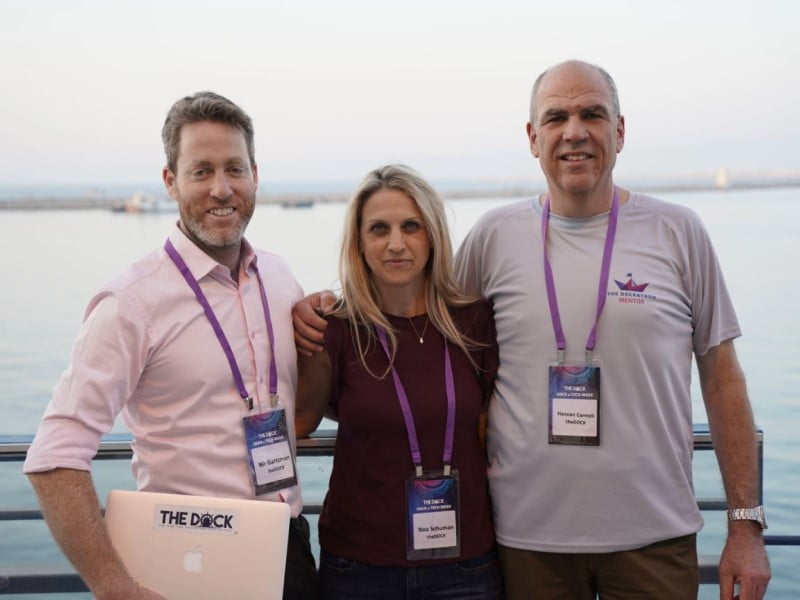Ahead of the Australia-Israel Innovation Summit, MarineTech venture capital fund theDOCK’s co-founder Hannan Carmeli shared his thoughts on automation opportunities in the maritime sector and his aim to build relationships with Australian firms.
A graduate of the Israeli Naval Academy and Israeli Navy, Mr Carmeli has spent 30 years working in the tech sector, including a 10-month stint as Director of International Activity at the Israel Innovation Authority.
Five years ago, he sought to marry his work experience with his long-time passion for sailing, eventually co-founding theDock, a venture capital fund dedicated to investing in startups in the maritime, supply chain, and offshore sectors. The fund has a particular focus on automation in marine vessel and docking terminal operations. For example, portfolio company Orca AI is developing a platform which could facilitate autonomous shipping.
Now running its Navigate II fund, worth US$30 million, Mr Carmeli said theDock’s deal flow is currently 60-70 per cent Israeli, with the remaining spread around the world. Investment partners include Singaporean port operator PSA International’s venture capital arm and Japanese logistics company NYK Line.
Mr Carmeli will speak on a panel at the Australia-Israel Innovation Summit to discuss the opportunities to ‘Digitise Supply Chains in a Services-driven Economy’ on October 19. The summit is organised by the Australia-Israel Chamber of Commerce.

“Today, there is much more data generated than back 10 years ago, even five years ago. Every terminal operation, every vessel, every truck, every car, they all generate data because of different IoT devices that were installed. And now there is a big trend of companies and startups looking at how to leverage all that data in order to bring better efficiency, in order to reduce emissions, and in order to do better future planning,” Mr Carmeli said.
“With the enormous amounts of data available today already it is only through technologies such as artificial intelligence, machine learning, and augmented reality…that stand a chance to actually convert the data into meaningful insights and observations.”
He added that the insights would help build supply chain resilience, learning from the disruptions of the Covid-19 and the blockage of the Suez Canal in March 2021.
Design partnerships where large corporations help mould and direct startup innovation is “extremely important for both sides” he added. Large corporations get “new out of the box ideas about how to solve problems”, while startups get “realistic data and information about how the innovation would work” in real-world applications.
Mr Carmeli said that companies generally have two options when it comes to taking equity in startups. It could be done through the creation of an internal corporate venture capital (CVC) arm or by investing in a venture capital fund with subject matter expertise. Although he acknowledged that the creation of a CVC gives companies more control over the end product, Mr Carmeli argued in favour of the latter option.
Firstly, establishing a CVC can be very costly for firms, it requires building a whole new set of operations “when this is not the main business of the company”, he said.
“The other [downside] is that when a corporate invests in a startup through a CVC, it may associate the startup too closely with that one company, preventing that startup from doing business with competitors of the company.”
He also noted that some firms may choose to invest in venture capital funds to avoid the “heavy-lifting” of screening startups. “We are trying to make investments in one startup out of 100,” Mr Carmeli said.
“When you’re screening startups, that’s a lot of heavy lifting, because I’ll give you an interesting piece of data. We are trying to make investments in one startup out of 100…Not each and every cooperate, can or wishes to engage in that heavy lifting so sometimes they see value in having other independent VCs doing all the heavy lifting and then deciding through a CVC platform, deciding if they wish to invest directly in any of the startups that was picked up by the independent VC.”
Mr Carmeli said “Australia has quite a heritage when it comes to maritime” and that he is eager to strengthen theDOCK’s relationships with Australian corporations and startups. He also added that it’s “no question that Australia has a lot to offer” the global supply chain sector.
“We’re always looking for good strong strategic investors in our fund…but because of our vertical nature we like to [work with large corporates].”
InnovationAus.com is media partner for the Australia-Israel Innovation Summit. You can find out more about the full program and book your tickets by clicking here.
Do you know more? Contact James Riley via Email.
Credit: Source link


Comments are closed.